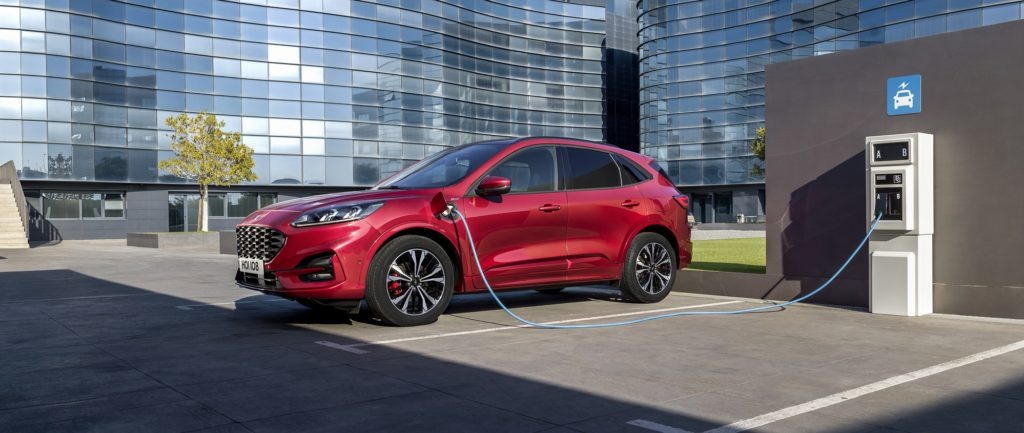Ford recalls Kuga PHEV over battery fires
12 August 2020

12 August 2020
Ford of Europe has recalled units of the Kuga plug-in hybrid (PHEV) built up until 26 June 2020, after four vehicles reportedly caught fire. As well as issuing a recall notice, the manufacturer has also suspended sales of the model. The action was taken due to concerns about overheating battery packs.
The news will come as a particularly hard blow, given the Kuga’s positive Q2 results, with over 13,000 units sold in Europe. It was even the bestselling car in Denmark during June. The PHEV version accounted for 51.1% of total Kuga sales since its introduction.
Overheating battery cells
The recall notice outlined the cause of the problem as being the potential for water to cause an electrical short, which could then lead to overheated battery cells. ′Physical damage to the Secondary On-Board Diagnostic Control Module A (SOBDM) and/or the SOBDM connector could allow water ingress to the module, which may cause an electrical short. A short in the SOBDM can potentially cause one or more battery cells to overheat, increasing the risk of fire,’ the recall on the European Union’s consumer alert website reads.
In a statement sent to Autovista Group, Ford confirmed the sale of Kuga PHEVs built prior to 26 June 2020 has been temporarily suspended. ′We have identified a potential issue with the overheating of the high-voltage drive battery, which in certain circumstances could possibly result in a fire in the battery area,’ the carmaker explained. ′The overheating can occur when the vehicle is parked and unattended or is charged.’
A statement sent to UK publication Autocar indicated that four vehicle fires were likely to have been caused by the overheating of the high-voltage batteries.
The carmaker is contacting customers in possession of a Kuga PHEV and advised them not to charge their high-voltage battery externally until further notice. They were also asked to keep their cars in EV Auto drive mode, where energy is transferred between the battery and engine automatically. It is estimated that over 20,000 models could be affected.
′We recognise the inconvenience this may cause to our customers and remain committed to providing our customers with safe and high-quality vehicles, addressing potential issues and responding quickly,’ Ford added.
Issues out of the gate
This latest turn of events will not be welcome news for Ford. This is not only down to the Kuga PHEV’s popularity but also because of the amount of time, money and resources Ford is continuing to dedicate to electrification. In the release of its Q2 results, Roelant de Waard, vice president, marketing, sales and service at Ford of Europe said, ′In Q3 we will continue our drive to electrify the Ford range with the launch of our new Fiesta and Focus EcoBoost Hybrid models.’
With manufacturers looking to make an electrified return from the coronavirus (COVID-19) crisis, the success of these first-to-market models is of paramount importance. Carmakers are considering PHEVs as an essential stepping stone for some consumers on the road to full battery-electric vehicles (BEVs). If popular models like the Kuga PHEV prove problematic in the public eye, consumer confidence in electrified vehicles could take a hit.
Of course, Ford is not alone when it comes to issues with electrified vehicles. Both Audi and Jaguar recalled their BEVs in June 2019. Audi found similar-sounding issues with the e-Tron’s battery cells, which could potentially be exposed to moisture because of a wiring harness fault. Meanwhile, Jaguar recalled the I-Pace because of a software fault that could have resulted in the failure of the electric braking system.
While these issues are concerning, it is also important to recognise that all vehicle types can be recalled, not just those with an electrified powertrain. In July last year, Volvo found itself recalling over half a million vehicles because of a faulty engine component that could lead to a fire. The 507,000 cars were produced between 2014 and 2019 and sported a 2.0-litre, four-cylinder diesel engine.